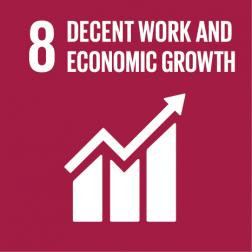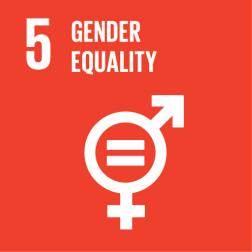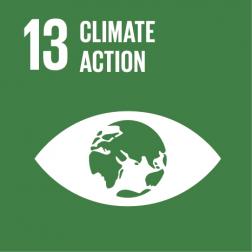Entrepreneurship and women’s inclusion
The NGO ACTEC highlights entrepreneurship as a lever for social change. Its programme has a significant impact on vulnerable populations, particularly women and teenage mothers. In 2024, thanks to Interactuar's Business School for Micro-Enterprises, 12,161 entrepreneurs, mostly women, were able to enhance their businesses. Fundación Carvajal also equipped 913 micro-enterprise leaders with strategic tools like:
- knowledge of business management: these tools help entrepreneurs manage their finances, marketing, and operations more effectively;
- leadership skills: these skills enable entrepreneurs to motivate their employees and expand their businesses;
- growth strategies: these strategies help entrepreneurs spot new opportunities for expansion and grow their businesses sustainably.
In terms of professional inclusion, 979 teenage mothers received technical training and psychosocial support from the Fundación Juanfe, helping them enter the workforce. The economic impact is tangible: in Antioquia, participating businesses saw a 31% increase in sales and created 573 jobs. In Cali and Buenaventura, micro-enterprises experienced sales increases of 34% and 36%, consolidating 1,276 jobs.
Entrepreneurship is a powerful driver of social and economic change. It stimulates economic growth by creating jobs and increasing sales, as shown by the examples in Antioquia and Cali/Buenaventura. It also fosters social inclusion by providing opportunities for vulnerable groups, such as teenage mothers, helping them enter the workforce and achieve financial independence. Additionally, entrepreneurship boosts innovation and resilience, enabling communities to adapt to economic and social challenges. It also strengthens social ties by creating support networks and promoting local economic development.

Towards a recognised agroecology
Another important theme for Belgian cooperation in Colombia is the climate. The climate is a global issue, and Colombia is both highly vulnerable to climate change and a key player in the fight against it. Belgian international cooperation supports Colombia in reaching these goals.
Colombia has taken a major step towards sustainable development by adopting a public policy dedicated to agroecology on 30 October 2024. This decision, taken during COP 16, reflects the country's commitment to promoting environmentally friendly and community-focused agricultural practices. This policy is the result of years of effort by farmer, indigenous, and Afro-Colombian organisations, that have worked tirelessly to highlight the importance of agroecology. Key contributors to this effort include Broederlijk Delen and its partners, whose support has been crucial.
The Comité del Impulso del Movimiento Agroecológico Colombiano (CIMAC or Colombian Agroecological Movement Promotion Committee) played a key role in this process, fostering collaboration among the various stakeholders. This initiative is a major step forward in recognizing and promoting agroecology as a viable and sustainable agricultural model in Colombia, highlighting the importance of local community involvement in environmental protection. For example, the "En-raízando" initiative has brought together young people from Guatemala, Bolivia, Peru, and Colombia to participate in a continental meeting to build a common vision from the perspective of Latin American youth. Now in its third year in 2025, this initiative combines virtual activities with national and continental meetings, and connects with young people in Belgium around agroecology and sustainable development. In this initiative, virtual and in-person exchanges, joint projects, partnerships with Belgian organisations, digital tools, and project funding are used to create a dynamic network of committed young people.
Moreover, the recognition of river rights marks another significant victory: Law 2415 of 2024 granted legal rights to the Ranchería River, ensuring essential protection to the Wayuú and Afro-descendant communities.

Decent work: for greater social justice
Lastly, the theme of decent work is supported by the NGOs FOS, Solsoc and IFSI/ISVI. This programme focuses on defending fundamental rights in the workplace. With a multidimensional approach, it combines training, research, legal assistance, and political advocacy to bolster the rights of workers, women, young people, and farmers. Its goal? To reduce inequalities and transform the living conditions of over 20,000 people by promoting decent and fair employment.
The importance of decent work and Belgian expertise in this area play a crucial role in supporting Colombia to build a future where all workers can enjoy their fundamental rights and live with dignity. This translates into strengthening the legal framework, developing skills, promoting social dialogue, fighting inequalities, and improving living conditions.

Cooperation that benefits everyone
Beyond its local impact, the Belgian-Colombian cooperation reflects a mutually beneficial alliance for both countries. Together, they combat drug trafficking, support rural development and peace, and promote cultural and economic exchanges. By collaborating within international organisations, they advocate for human rights, democracy, and sustainable development.
Through concrete initiatives and mutual commitment, Belgium and Colombia demonstrate that development cooperation is about partnership and building a fairer, more prosperous shared future.




